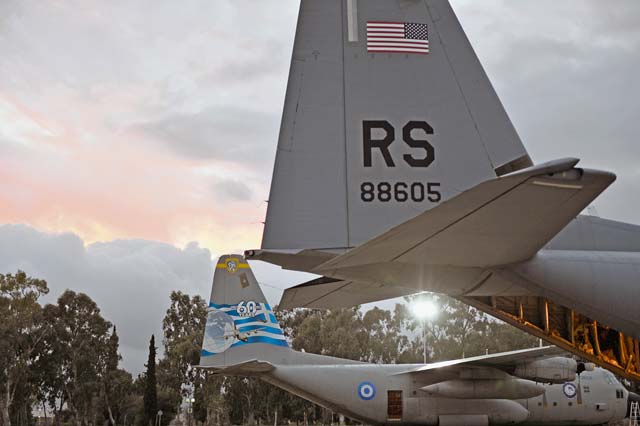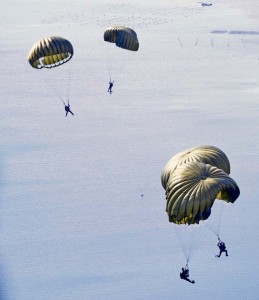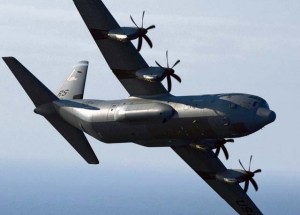
ELEFSINA, Greece — In true Greek fashion, a few select service members from the KMC undertook a momentous task.
Though lacking the same herculean strength outlined in Greek mythology, these Airmen made up for it with sheer determination and the will to succeed in their task — appropriately named Stolen Cerberus, a two-week flight training deployment to Elefsina, Greece, Feb. 2 to 14.
Matching the legend started by Hercules — or Heracles in the original Greek translation — Airmen and Soldiers from the Joint Airdrop Inspection team set out on a seemingly simple task that proved more daunting than originally expected: provide the means to safely and effectively drop cargo and paratroopers out of a C-130J Super Hercules.
Due to several recent rainstorms, conditions at the drop zones in Greece were extremely muddy, which made it unsafe for jumpers and difficult to recover dropped cargo.

“Because of the mud, there were a lot of problems dropping on the zones,” said Tech. Sgt. Andrew Holsenback, 86th Operations Support Squadron wing weapons and tactics flight chief. “Our job requires us to survey each zone and ensure it is safe for use. We also monitor conditions from the ground during drops to make sure everything goes well.”
Holsenback added that even with the problems, the cooperation of our Greek partners made the airdrop success during this mission possible. They also dropped Greek equipment and jumpers, and coordinated closely with their counterparts in the Hellenic military.
“We’ve had a lot of interaction with the Greeks during these two weeks, which has been great,” he said. “They want to learn from us, and we want to learn from them, so having the opportunity to get this type of hands-on experience has been amazing.”
The cooperation from the Greek service members allowed U.S. and Hellenic forces a chance to see airdrop operations in a new way. Chief Warrant Officer 4 Orlando Villegas, 21st Theater Sustainment Command airdrop adviser, said there were a lot of differences in the way both nations perform airdrops.
“We have been so involved with each other’s operations during this trip, which has been invaluable for the U.S. and Greek forces,” he said. “It allows both countries to see the differences and hopefully take some of that knowledge to improve our cooperation in the future. It only makes us better.”

He added that it was the combined efforts during this mission that led to its success.
Though not performing the 12 labors of Hercules, the JAI service members met the challenges during Stolen Cerberus with the sole mission of honing their skills while increasing their capability with their NATO partners in Greece. They accomplished this task with flying colors, proving not only that the airframe lives up to the name of Hercules, but they are worthy of the legend as well.


